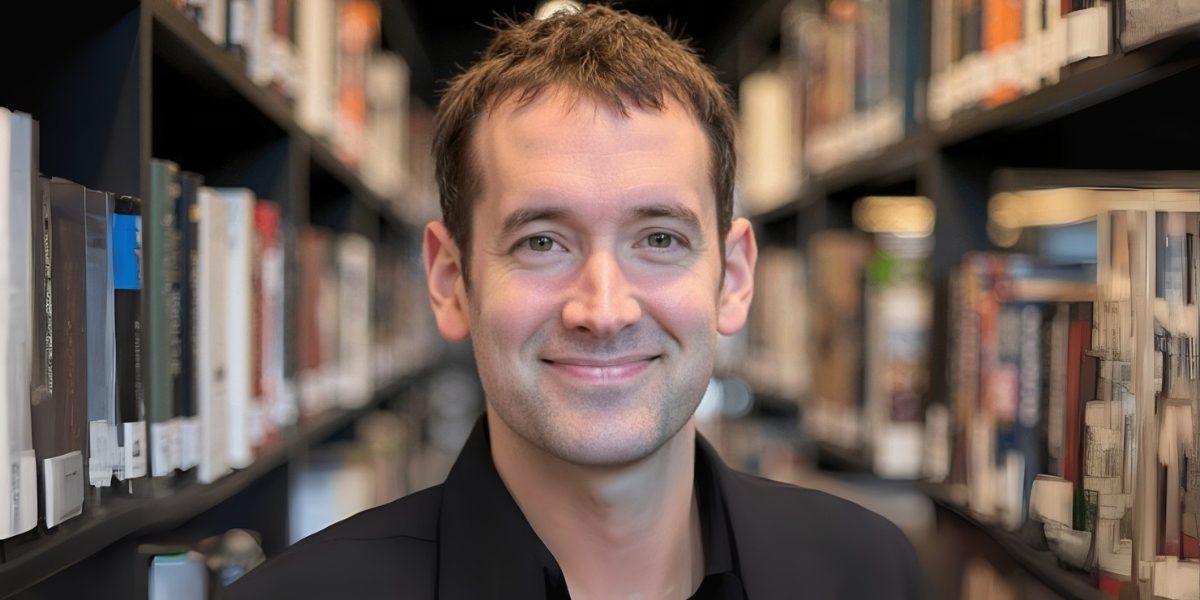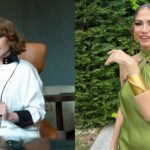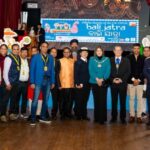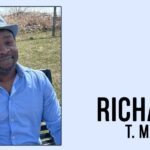By: Alex Smith
John Cambridge is an experienced entrepreneur in the life sciences sector, specializing in arthropod zoos and educational museums. He is known for developing innovative, hands-on learning environments that engage and educate the public.. His latest venture, Village Edu, is a non-profit zoo in the Washington D.C. area dedicated to live animal interactions and data-driven community initiatives aimed at preserving biodiversity. This interview delves into John Cambridge’s background, his journey, and the insights he’s garnered through his diverse career path.
Reflecting on your early career, what are some accomplishments from your time at the Insectarium that you’re most proud of—and why do they still matter today?
It was a massive left turn going from academia into the business world. To be honest, when I first finished my Ph.D., I didn’t really know how I would function in a museum environment. But I quickly learned that while the puzzles were different, the strategies used to solve them could be quite similar. Instead of asking the administration for permission to do a project, I had to ask the city’s Department of Licensing and Inspection. Instead of figuring out how to best present a concept to undergraduates, we were developing lessons for the general public. Balancing an office budget didn’t end up being all that different from managing a grant. I came to be very proud of the education I had received because, while it didn’t directly prepare me for what I was having to do, it taught me how to prepare myself for whatever I needed to do. As it turns out, the scientific method can be successfully applied to most things in the real world.
I built a team of educators, artists, construction workers, and administrators to transform a fading pest control company into a thriving science museum. Through research and travel across North America, I reverse-engineered existing butterfly pavilions to develop a plan for constructing our own in Philadelphia. With community support and strategic fundraising, we brought the project to life—creating one of the largest and most cost-efficient facilities of its kind in the United States. The organization grew steadily, and our programs have helped educate thousands of Philadelphia children about the vital role insects play in our ecosystem.
As someone with a deep background in nonprofit leadership, what principles guide your approach to transparency and accountability in public-facing ventures?
I’ve started 6-7 companies at this point. I’ve built non-profit theater companies that oversaw the construction and programming of new community theater spaces. I’ve built and ran yoga studios. I’ve created business consulting companies that have worked with large and small clients alike. I worked with countless other startups and helped other entrepreneurs navigate the early stages of their companies. So far, the biggest company I’ve built was a science museum and zoo. No matter if it’s a for-profit or non-profit, I believe that the credibility of the business’s leadership will translate into the success or failure of the company. A company is made of people and revenue is built on relationships. If the leadership is earnestly invested, competent, and hardworking, they will overcome whatever hurdles they are faced with.
What core lessons from past leadership experiences are shaping your approach to this new chapter with the Bethesda zoo project?
I think a highly variable business model can be exciting and interesting, but that often comes at the cost of scalability. I spent almost a decade working as the CEO of a company that specialized in always doing different, new, and risky things. I am proud to have navigated and led that environment, but for this next chapter, I’m focusing on very different practices. Village Edu is a new company I’ve started that will be grounded in repeatable, scalable lessons that we plan to see delivered in classrooms across the country. I am laser-focused on ensuring that our staff are prepared to give the very best lessons and educational experiences possible. We will simply be the best there has ever been.
What motivated you to return to public life and pursue a new venture in animal science and education, despite prior media challenges?
I love teaching people about the natural world. And as I continue to read reports about the vast environmental destruction around us, I am compelled to do everything within my power to try and educate the next generation about the importance of maintaining our natural resources. I will be a father in just a few short months. I never really understood what people meant when they said they felt compelled to try and “save the world” out of love for their child. But I get it now. And I’ll do my best as well.
The interview continues to explore the intricacies of John Cambridge’s vision for his new projects and how they are set to impact the field of entomology and community-focused education.
Cambridge: Innovating Education and Community Engagement in Entomology
Continuing from the earlier insights shared by Dr. Cambridge, this part delves deeper into his expertise, achievements, and vision for the future of entomological education and community involvement.
How do you see the role of museums and educational institutions evolving in the digital age, particularly in your field?
In the digital age, accessibility to information has expanded exponentially, but this also means we’re bombarded with a lot of noise. Museums and educational institutions must adapt by not just presenting facts, but by teaching critical thinking and fostering curiosity. In entomology, we have the unique advantage of being able to offer immersive, hands-on experiences that digital media cannot replicate. Interactive exhibits and live demonstrations can ignite interest and passion, serving as a bridge between the digital and physical worlds. Our goal is to integrate digital tools to enhance these experiences rather than replace them.
What are some innovative strategies you are considering for Village Edu to engage the community and foster awareness about entomology?
We are piloting several initiatives that combine educational content with community participation. For instance, our “Citizen Science” projects are designed to involve local schools and community members in real scientific research, such as cataloging local insect biodiversity. This not only provides valuable data for our studies but also educates participants about the ecosystems in their own backyards. Additionally, we are developing mobile apps to extend our reach, allowing users to engage with our exhibits through augmented reality and interactive storytelling.
In terms of global challenges like biodiversity loss and climate change, how does your work contribute to these pressing issues?
Our work aims to educate the public on the importance of insects in maintaining ecological balance. Insects are crucial pollinators and a food source for many species, so their conservation is directly linked to broader environmental health. By educating people about these connections, we hope to inspire proactive conservation efforts. At Village Edu, we plan to implement sustainability practices, such as energy-efficient facilities and conservation gardens, to serve as a model for environmentally responsible operations.
Reflecting on your extensive career, what achievement are you most proud of, and why?
I am immensely proud of creating and implementing educational programs that have reached thousands of children and adults, fostering a deeper understanding and appreciation of insects. Seeing the excitement in a child’s eyes when they hold a butterfly for the first time or learn about the role of bees in pollination is incredibly rewarding. These moments are not just educational; they are transformative, instilling curiosity and respect for nature that can last a lifetime.
What lessons from your journey would you impart to young scientists and educators who aspire to follow in your footsteps?
The most critical lesson is to remain curious and adaptable. The landscape of science and education is always changing, and the ability to learn and apply new knowledge is invaluable. It’s also important to communicate your passion and ideas effectively, both to your peers and the public. Building relationships and networks can open doors and create opportunities that you might not have envisioned. Finally, never underestimate the power of resilience. Challenges and criticisms will come, but they are opportunities to grow stronger and more determined.
Looking ahead, what is your vision for the future of Village Edu and its impact on communities and the field of entomology?
My vision for Village Edu is to become a leading force in educational innovation and community engagement in the field of entomology. We aim to establish a nationwide network of educational hubs that provide consistent, high-quality programming. These centers will serve as community anchors, promoting lifelong learning and environmental stewardship. In the long term, I hope our work will contribute to a more informed and proactive public, one that values and protects our natural world for future generations.
In conclusion, John Cambridge’s journey is a testament to the profound impact that passion-driven initiatives can have on education and community engagement. His work with Village Edu represents a pivotal movement towards integrating hands-on learning with conservation efforts, poised to leave a lasting legacy in the realm of entomology.
Disclaimer: The content provided is for informational purposes only and is based on the personal experiences, opinions, and insights shared by Dr. Cambridge. The article does not make guarantees or claims on the success or outcomes of any projects or initiatives discussed. Readers are encouraged to conduct their own research and seek professional advice before making any decisions based on the content provided.

















